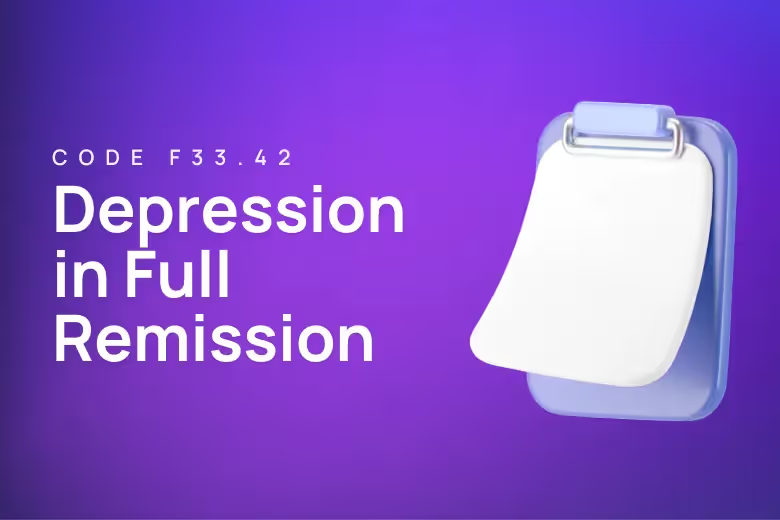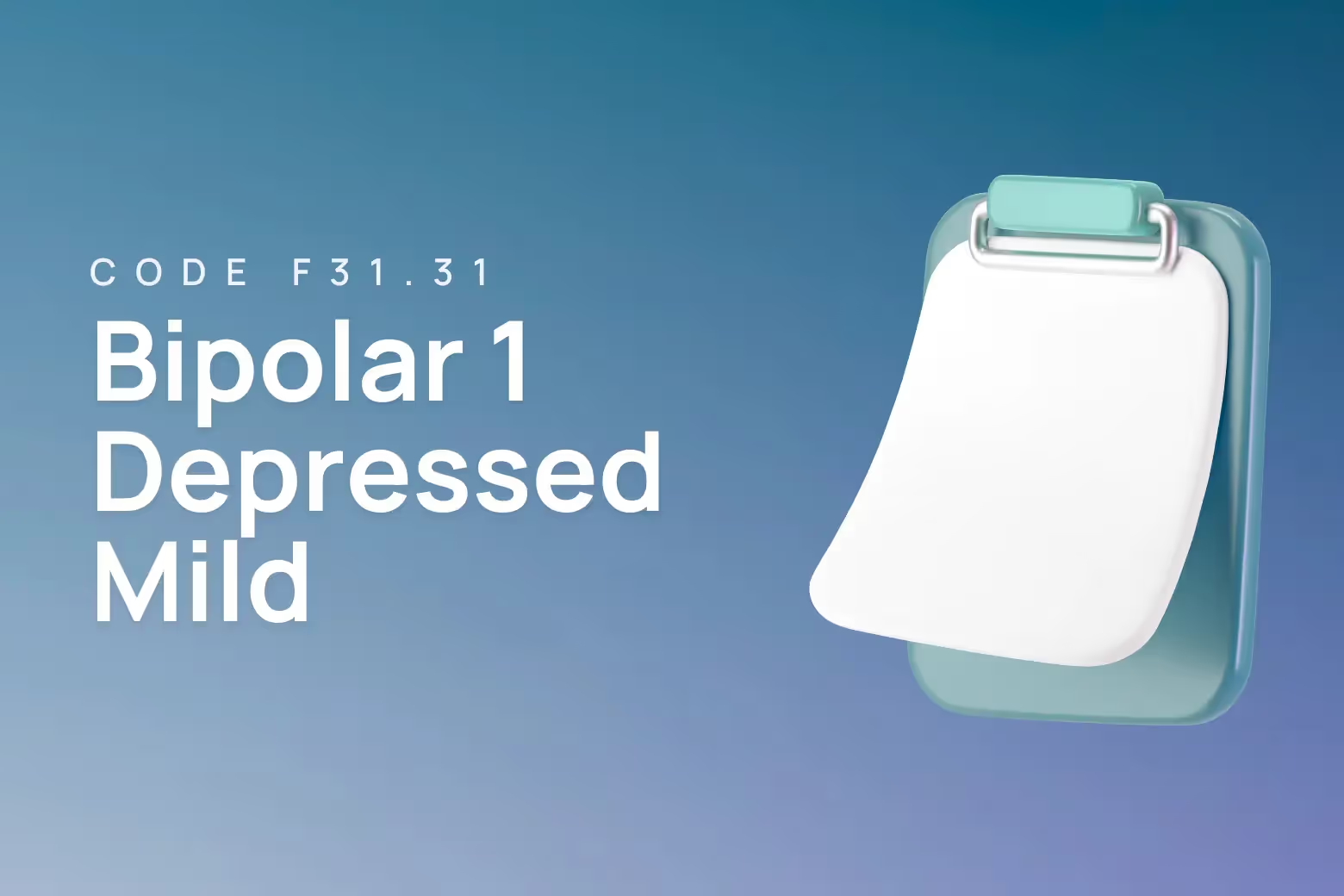ICD-10 code for mixed obsessional thoughts and acts

Living with obsessive-compulsive disorder (OCD) often means grappling with both intrusive thoughts, urges, images and doubts and compulsive behaviors or mental acts that interweave in a complex dance of anxiety and relief. For many individuals, these thoughts and actions don't exist in isolation but rather feed into and reinforce each other in a way that significantly impacts daily life, relationships, and emotional wellbeing. Yet with proper diagnosis and treatment, individuals can learn to manage these intertwined symptoms and reclaim their sense of control.
The ICD-10 code for mixed obsessional thoughts and acts is F42.2. This diagnosis appears within the F40-F48 category of mental and behavioral disorders, specifically under F42 Obsessive-compulsive disorder, alongside other anxiety and stress-related conditions.
According to the International Classification of Diseases (ICD-10), mixed obsessional thoughts and acts represent cases where both obsessions and compulsions are present..
When to use F42.2 for mixed obsessional thoughts and acts
There are diverse and nuanced presentations of most OCD-related conditions, making it especially important to consider differential diagnoses when billing for treatment.
F42.2 vs F42.0 (Predominantly obsessional thoughts)
While both diagnoses involve obsessive thoughts, F42.0 can involve just obsessions, just compulsions, or both. In contrast, F42.2 establishes that both persistent thoughts and corresponding compulsive behaviors are present. For example, someone with F42.0 might experience intrusive thoughts about contamination without engaging in extensive cleaning rituals, while an individual with F42.2 would experience both the thoughts and cleaning compulsions.
F42.2 vs F60.5 (Obsessive-compulsive personality disorder)
While both conditions may appear similar on the surface, they represent fundamentally different experiences of obsessive and compulsive traits. OCD with mixed presentations (F42.2) involves distinct, intrusive thoughts and ritualistic behaviors that the person recognizes as excessive or unreasonable. These symptoms often feel like unwelcome intruders in one's life, causing significant distress and interfering with daily functioning.
In contrast, individuals with OCPD (F60.5) typically view their perfectionist tendencies and rigid thinking patterns as correct and desirable. Their focus on order, perfectionism, and control feels ego-syntonic — aligned with their self-image and values. While both conditions can impact work and relationships, OCPD traits are experienced as part of one's personality rather than as intrusive symptoms to be resisted.
Other ICD-10 codes for obsessive-compulsive and related disorders
- F42.8 Other obsessive-compulsive disorders
- F42.9 Obsessive-compulsive disorder, unspecified
Interventions and CPT codes for mixed OCD
Exposure and Response Prevention (ERP)
The gold standard treatment for mixed OCD, ERP helps individuals gradually confront their fears while learning to resist compulsive responses. This intervention creates a safe space for clients to experience anxiety-provoking situations while building confidence in their ability to tolerate discomfort. Through careful guidance, clients learn that both their obsessive thoughts and the urge to perform compulsions will naturally diminish with time and practice.
With ERP, providers would bill using the CPT codes for individual psychotherapy:
- 90832 30-minute session
- 90834 45-minute session
- 90837 60-minute session
Cognitive Behavioral Therapy (CBT)
While ERP remains the primary intervention, CBT provides essential tools for understanding and challenging the thought patterns that fuel both obsessions and compulsions. Clients learn to examine their beliefs about risk, responsibility, and control while developing healthier coping strategies.
As with ERP, CBT would be billed as individual psychotherapy:
- 90832 30-minute session
- 90834 45-minute session
- 90837 60-minute session
Family-based intervention
Family therapy plays a crucial role in treatment success by addressing accommodation behaviors and building a supportive home environment. Family members learn to recognize and respond effectively to OCD symptoms while maintaining healthy boundaries.
The CPT code for family therapy depends on how the patient participates:
- 90846 Family therapy without patient present
- 90847 Family therapy with patient present
Group therapy
Group interventions provide a powerful healing environment where individuals can share experiences, learn from others' successes, and practice skills in a supportive community. Groups often combine psychoeducation with practical skill-building exercises.
The CPT code for group psychotherapy is 90853.
Supporting clients with mixed obsessional thoughts and acts
The journey of managing mixed obsessional thoughts and acts requires a comprehensive treatment approach that addresses both the cognitive and behavioral aspects of OCD. Modern research offers hope through evidence-based treatments, particularly when providers can focus their full attention on implementing these interventions effectively.
Today's healthcare system demands that providers maintain meticulous clinical documentation while delivering high-quality care. The challenge lies in balancing these administrative requirements with the need to provide deep, attentive support to clients struggling with both obsessive thoughts and compulsive behaviors.
Upheal is an AI-powered clinical documentation platform that helps behavioral health providers focus more on supporting their clients while ensuring thorough, compliant documentation. By streamlining the documentation process, providers can dedicate more time to addressing the complex interplay of thoughts and behaviors characteristic of mixed OCD.












